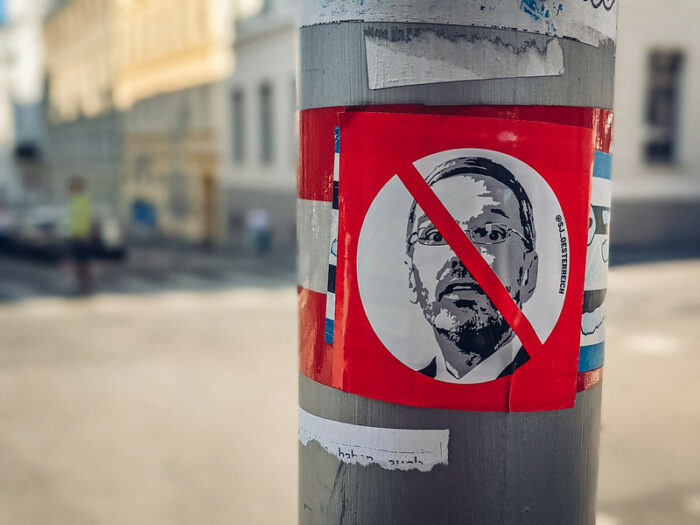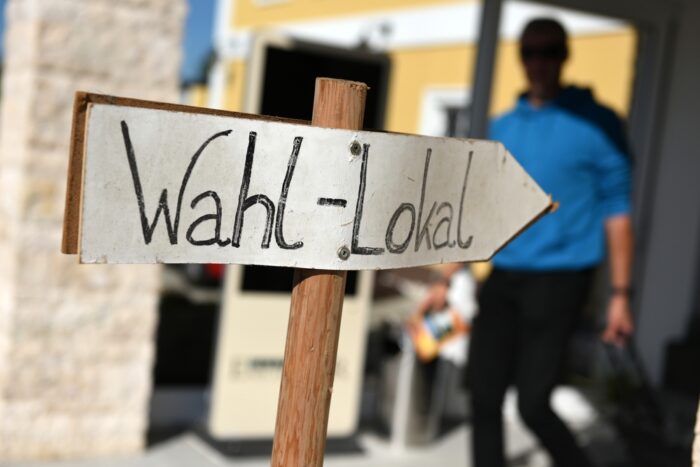The Progressive Post
🇧🇪 Stuck in a castle or in a box: how Belgian media re-invented political debates
Traditional television debates seem to have lost their spark with the voters, as they do not leave a big impression on the viewers and are not broad enough in terms of content. During these last campaign weeks, the Belgian media created new political debate formats without the usual debate sheets, slightly more dramatic and with more content on the table.
At first glimpse it was an unusual format of a political tv-debate when the Flemish Broadcaster VTM launched the program ‘Het Conclaaf’ (The conclave) in the midst of the campaign for the national elections. Political leaders from each Flemish Party were invited for a weekend in the castle of Jemeppe in the Belgian Ardennes. For the maker Eric Goens the departing point of the series was the question “can politicians interact like normal people?”. The eventual outcome of the series was suprising: while triggering the expected personal disputes, the conversations put several unforeseen topics on the campaign agenda.
The castle setting seemed at first rather relaxed and entertaining. But during the talks, and especially during the face-to-face duels, where the speakers were each allowed to pose a question of their own choice to their opponent, personal feuds, ideological visions and different views on society came forward. Prime minister De Croo leaving the castle earlier, due to so-called ‘other obligations’ seems to have predicted his ill-fated campaign.
The other big Flemish broadcaster VRT focused on the first-time voters. The 16-17 year old Belgians who voted for the first time in the national elections, and who, in addition fell, for the first time, under the compulsory voting-rule in the European elections. The tv format ‘Eerste Keus‘ (First Choice) brought politicians to a classroom, unprepared and uninformed about the exact audience, they had to interact with high school students.
During these settings, the actual first debates about LGBTQI+ rights and gender took place. In ‘Eerste Keus’, the president of the Flemish far right, Vlaams Belang leader Tom van Grieken, was asked about trans-rights by a trans-student. The former gave the party position that there should be no specific adjustments for trans people, such as gender-neutral toilets. Van Grieken also said that trans persons are allowed to be laughed at. In ‘Het Conclaaf’ he opposed trans-rights, even in debate with the Green deputy prime minister Petra De Sutter, herself a trans-woman. Conner Rousseau from Vooruit, the Flemish Socialist Party, asked Van Grieken if he personally would be fine with Rousseau having children with another man. The far-right leader replied that children have the right to have a father and a mother. Even confronted with people whose rights would personally be threatened or taken away by his world view, Van Grieken did not blink an eye. That was an unseen hardness that Flemish viewers did not approve and kept in mind in the voting booth.
A lighter tv format came from the Walloon broadcaster RTL. At the tv series ‘Pyjama partis’(Pajama Parties), the channel literally put the six Walloon party chairmen in pajamas. This program focused on first-time voters as well and was hosted by a young internet content creator. The goal of the series was to make young voters understand Belgian politics, and for them to get to know each of the six party presidents and their opinions and values, so that they can see where they stand on the political spectrum. The party presidents were faced with dilemmas, but in a game play-setting.
Another Walloon broadcaster, RTBF, made a more exciting format for a debate between the presidents of the two largest French-speaking parties: Paul Magnette from the Socialist Party (PS) and Georges-Louis Bouchez from the right-wing liberal MR. Their setting put the two politicians a glass box, where they had to look each other straight in the eye, with the moderator of the debate not seated at the table with them. This setting lead to a hyper-aggressive duel as the two leaders did not agree on anything. The lack of moderator at the table kept the two dodging questions until the presenter had to turn off the microphones. Magnette and Bouchez kept bickering, even when the presenter was already saying goodbye to the viewers.
The impact of these debate formats was that it pushed politicians out of their comfort zone. Whereas former focus on the politician used to look mainly for entertaining and apolitical portraits, the content now remained quite political and serious. Looking back at the wide interest and discussion on these formats, it can be concluded that these tv-shows have influenced the direction of the campaign and might even had a direct impact on the election results. While in the last years, the influence of social media on the political debate was mostly discussed, it can now also be argued that with renewed concepts and formats, more traditional media like TV can play a new and bigger role.
These media concepts have a broader range of subjects, and this makes the political debates more intense and meaningful, with more content. Meanwhile the social media are stuck on short videos with cliches and one-liners. Social media also tend to polarise the political debate. It is up to the traditional TV media to use the new formats to open the debate and also show the human behind the politician and the real emotions and interactions to give the voter the chance for a fully informed choice
Photo Credits: Shutterstock.com/AlexandrosMichailidis




